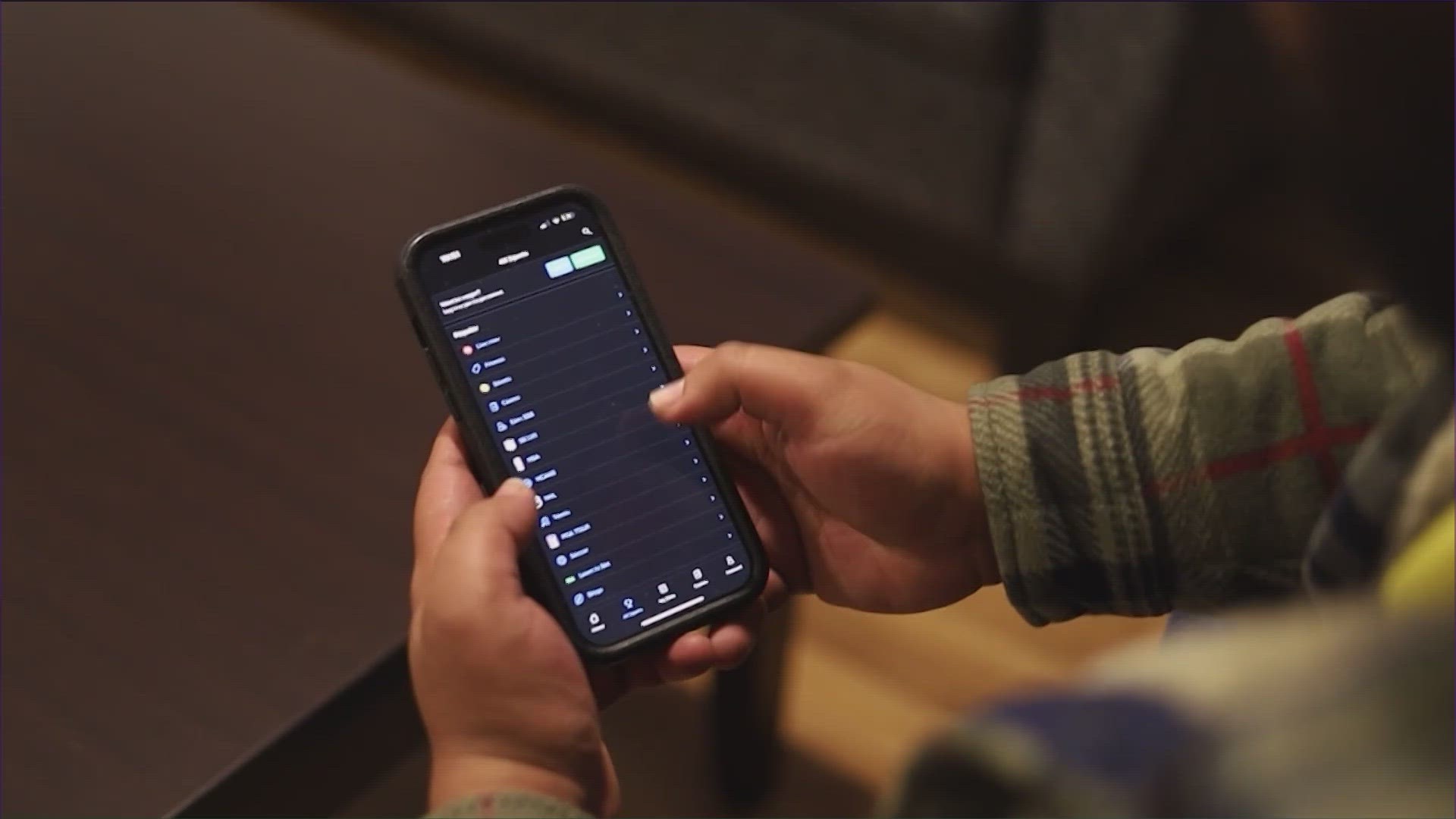AUSTIN, Texas — With March Madness officially underway, scammers will be targeting many people, sending texts offering fake contests, bracket challenges, promotions and prizes surrounding the tournament.
Many of these texts will appear to be from betting sites like DraftKings or FanDuel, but they’re really scammers trying to get you to click malicious links and give up sensitive information.
Chris Drake, senior vice president at iconectiv, said nowadays people have to be a lot more vigilant.
"For March Madness, they're basically recycling tried and true methods, like, 'Here's a prize you've won. Here's a promotion you can enter. Here are some tickets to a game that are hard to come by.' These are generally almost always false. They've been made up as a lure to get the the person to open that," Drake said.
Experts say think of scams as if you got a credit card warning unexpected as a text message. You don't call the number in the text message – you look at the back of your card and you call that number.
Drake said it's the same thing with March Madness.
"You should go to a legitimate site. You already know the NCAA website is running a bracket challenge. CBS Sports, ESPN, DraftKings, FanDuel, they're all running real bracket challenges. Don't click on any links. Go type in the address the way you know it to be firsthand, right? So never engage on unexpected unsolicited texts," Drake said.
There are some red flags to look for, including if you receive texts or emails using language that involves a sense of urgency, for example, using phrases like "you better act right now" or "you're going to miss your chance."
"That's probably a scam because that's not really how these work. They are trying to get you in a state of excitement to click that link without good judgment. If you are entering payment info and they ask for something untraceable and nonrefundable, this would be like a crypto currency Bitcoin-type thing or a gift card or Cash App, Venmo, Zelle. These payment apps are all nonrefundable. Even a wire transfer is nonrefundable," Drake said.
Drake said if scammers ever ask you for something besides a credit card, it's probably a scam. If you think you've fallen for a scam, freeze your credit. If you need to, it's free and easy.
"You can unfreeze it temporarily when you need to and you're back in a secure place within whatever period you set. So these are really important things to do before you get caught in a scam. Also, backing up your phone periodically to the cloud or your PC, that allows you to restore it if you get infected because you downloaded a link," Drake said.
If you receive a suspicious text, Drake said never engage – just ignore it so you can report it. You can click on the report button on an iPhone or Android or forward the message to 7726 (SPAM) where the mobile operators are keeping track of spam.
"If the text message is coming from a 10-digit number, it looks like a normal phone number, those are so easy to fake. We call that spoofing, where you falsify the number you're sending from. It might even be a number for CBS Sports or something else legitimate, but that is probably fake," Drake said.
Drake said for scammers, it's very cheap and almost free to send text messages from 10-digit phone numbers because there are no fees. However, be on the watch for 10-digit numbers or texts coming from a shorter number, with five or six digits.
"There's a whole community of technology companies, including iconectiv, that are working to make that a secure environment, to engage with businesses, with unlimited texting in both directions. So that requires an opt in, like if you as a consumer have not enrolled in getting text from that shortcode for that brand, then you aren't going to get it. So now they're very much a safer place, and it's a red flag if it's a 10-digit phone number instead," Drake said.
The March Madness NCAA championship game will be held on April 3.

